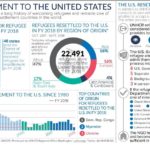I've been listening to Canadaland's isolation interviews. When The Globe and Mail's Robyn Doolittle was asked about the strangest thing that she had done that day, she replied that it was doing her normal job as an investigative journalist, working from home (where her partner and young children also are) on stories that have nothing to do with COVID-19. Like many, I feel constantly distracted by COVID-19 Dolittle's comment resonates with me. I feel odd working on a series entitled "At Home … [Read more...]
Peer support during political crises
Katy and I presented at a conference this weekend on our work on Arendt and the family. But we added a new twist to our deliberations, that of the peer group. According to Arendt, the peer group not only provides friendship but also political support. Our talk on the peer group was based on Arendt's essay on Rosa Luxemburg, which appears in Men and Dark Times. Luxemburg is one of only two woman who make an appearance in this book. The other woman profiled is the novelist, Isak Dinerson. … [Read more...]
First thoughts on public scholarship
Philosophers want their work to matter. At least I do. This hope partially explains my website tagline, "philosophy in the world." In my first blog post, I wrote, "I seek for my philosophical work to be embedded in the world and in service to maintaining it as a space for speech and action." Philosophy can be helpful for public matters. Philosophers often clarify ambiguous or muddled concepts or phenomena. Or, alternatively, philosophers point out that some concepts are treated too … [Read more...]
From stories to policies
Can storytelling help us respond to the opioid epidemic? Since 2016, more than 9,000 Canadians have died from opioids. Countless others have experienced health complications and adverse side effects, including a reversed overdose. The Canadian opioid epidemic shows little sign of slowing. It’s time we start exploring new approaches to the problem. A 90-day consultation In Canada, the Public Health Agency of Canada works with the federal government to create policies and institutions to support … [Read more...]
A state of unwelcome
It was chilling to read about Texas Governor Greg Abbott's statement that Texas would not resettle refugees in 2020. In recent years, Texas has been the state to resettle the largest number of refugees. Echoes of Arendt's Origins of Totalitarianism The Governor's decision reminds me of Hannah Arendt's discussion of the decline of the nation-state in the Origins of Totalitarianism. The phenomenon of statelessness tested the limits of national sovereignty. Some states stripped their unwanted … [Read more...]
- « Previous Page
- 1
- …
- 5
- 6
- 7
- 8
- 9
- …
- 18
- Next Page »




